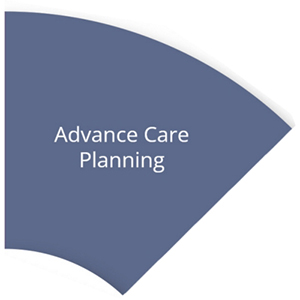 Advance Care Planning (ACP)
Advance Care Planning (ACP)
Advance Care Planning (ACP) is an essential part of healthcare. It helps people to share their wishes regarding medical treatment and care, especially when they might not be able to communicate them.
Aged care has a crucial role to play in enabling ACP discussions with older people.
Key aspects of ACP
-
Purpose and importance
-
When to initiate ACP discussions
-
Substitute decision-makers
-
Documenting ACP
-
Cultural and individual considerations
-
Training and education
-
Legal and ethical considerations
-
Resources and support
- ACP ensures that medical care aligns with a person's values, beliefs, goals, and preferences.
- It supports person-centred care, respecting an individual's wishes.
- ACP requires that the person describing their wishes is competent and free of coercion.
- When a person wants to talk about future planning.
- During health assessments, chronic disease planning, or annual vaccinations.
- Upon diagnosis of serious conditions like metastatic malignancy or early dementia.
- When there are changes in a patient's condition or care arrangements.
- A substitute decision-maker acts for the person if they are no longer able to communicate.
- The decision-maker needs to be available to support decision making when needed, be over 18 years old, and able to advocate clearly on the patient's behalf.
- You can encourage clients and residents to document their preferences in an Advance Care Directive.
- These documents should be shared with substitute decision-makers, family, friends, and healthcare providers.
- Documents can also be uploaded to My Health Record.
- ACP discussions and documents should respect diverse values, religious beliefs, and personal preferences.
- Conversations should be sensitive to cultural backgrounds.
- Special considerations are needed for Aboriginal and Torres Strait Islander people, LGBTI individuals, and those with cognitive disabilities.
- Training can help healthcare professionals and aged care staff to improve their knowledge and confidence in ACP discussions.
- Education resources include online courses, workshops, webinars, and information sessions.
- Healthcare professionals and aged care staff need to understand the laws and ethical principles of ACP.
- Different States and Territories have varying processes and requirements for ACP documents.
Types of Advance Care Directives
Common Law Directives are recognised under common law, or the law developed by judges on a case-by-case basis.
Statutory Directives are established by State and Territory legislation. They allow for specific future treatment decisions and, in some States and Territories, the appointment of substitute decision-makers.
Conclusion
Advance care planning is a proactive approach to ensure that a person’s healthcare preferences are respected.
It involves thoughtful discussions and documentation and can include the selection of a trusted substitute decision-maker. ACP in health and aged care settings can reassure older people that their wishes and preferences will guide future medical decisions.